Alphabet Learning Worksheets for Ages 5-8
7 filtered results
-
From - To
Discover fun and engaging Alphabet Learning Worksheets designed for ages 5-8 at Kids Academy. These printable resources enhance young learners' reading and writing skills by focusing on letter recognition, phonics, and proper penmanship. Featuring colorful illustrations, interactive exercises, and hands-on activities, our worksheets make learning the alphabet enjoyable and effective. Ideal for both classroom and home use, they provide a strong foundation in literacy, helping children boost their confidence and excel in their early education journey. Start exploring our diverse collection now and watch your child's love for learning blossom!
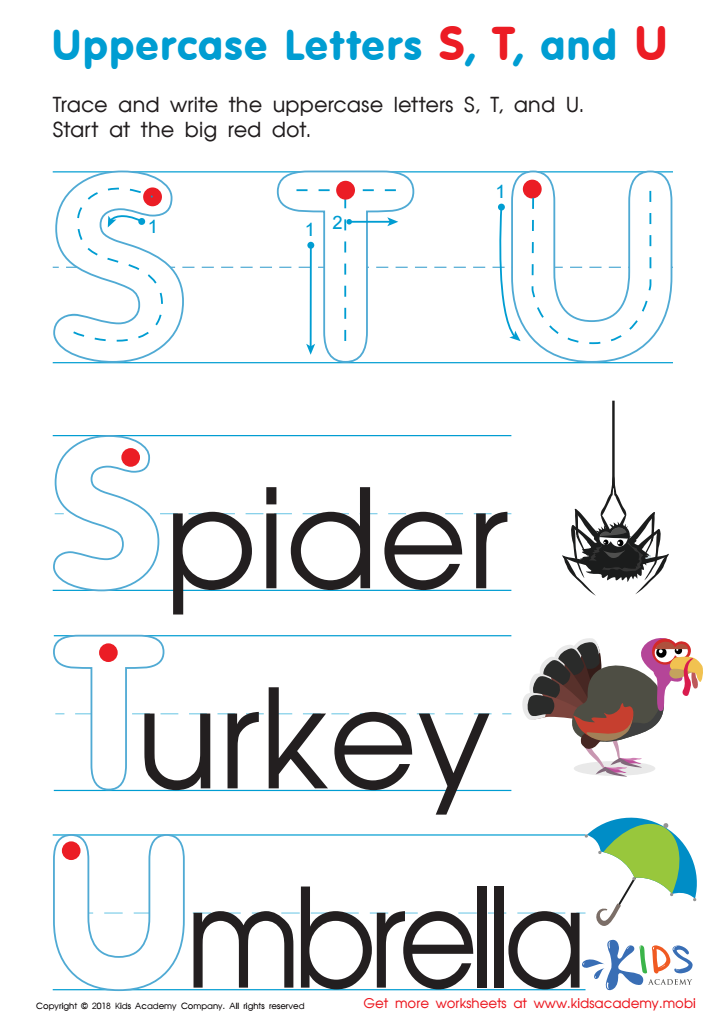

Uppercase Letters S, T, and U Worksheet
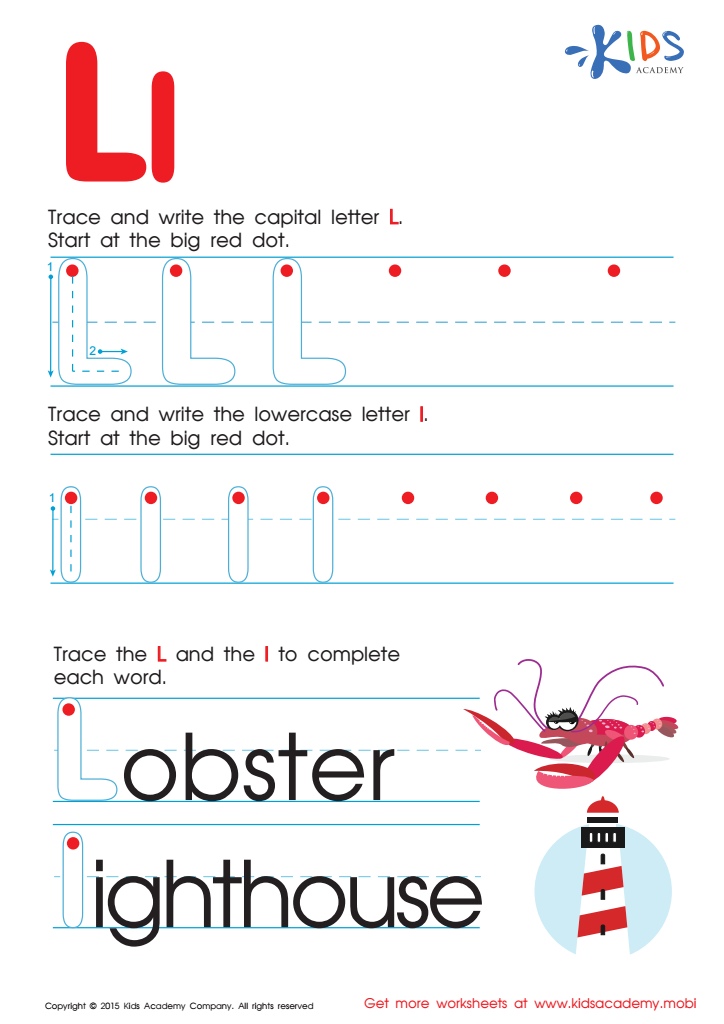

Letter L Tracing Page
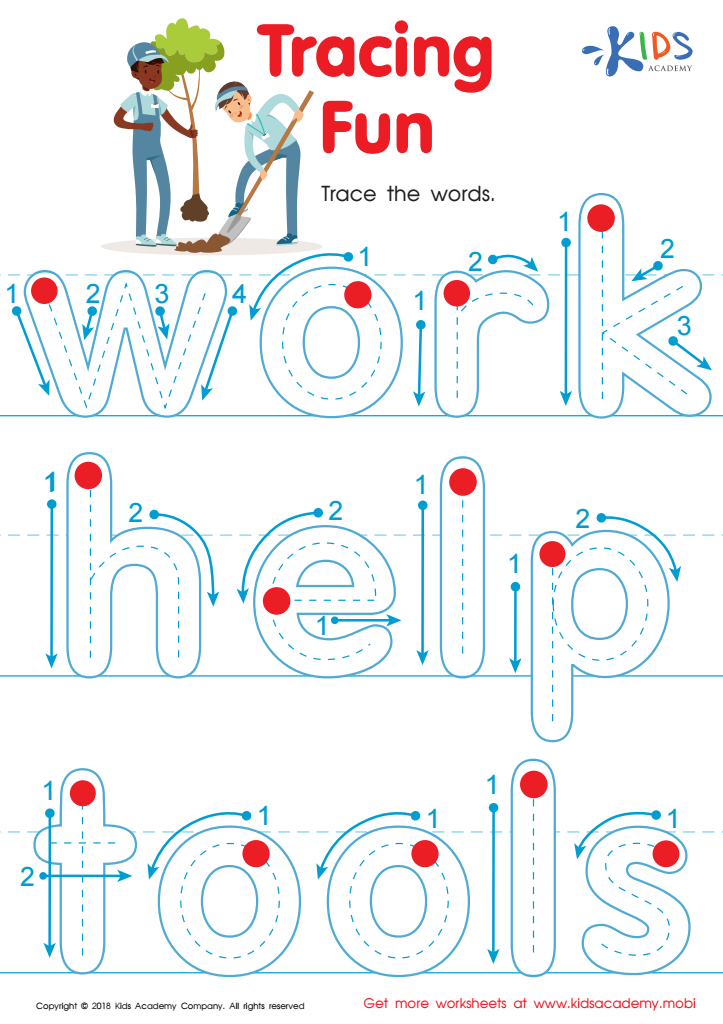

Tracing Fun Worksheet
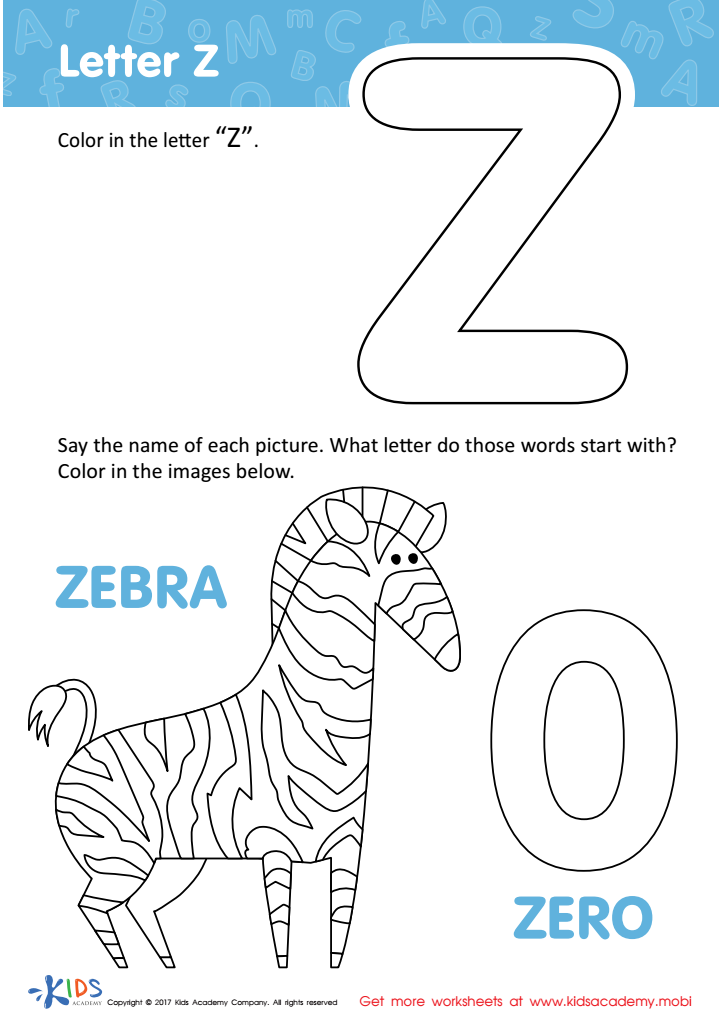

Letter Z Coloring Sheet
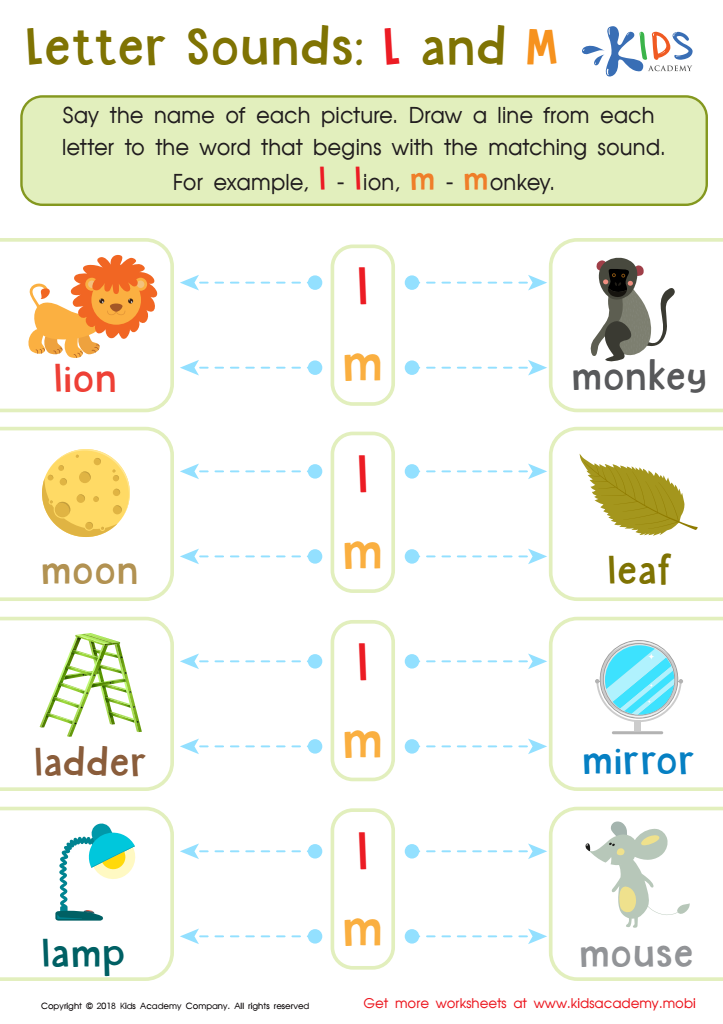

Letter l and M Sounds Worksheet
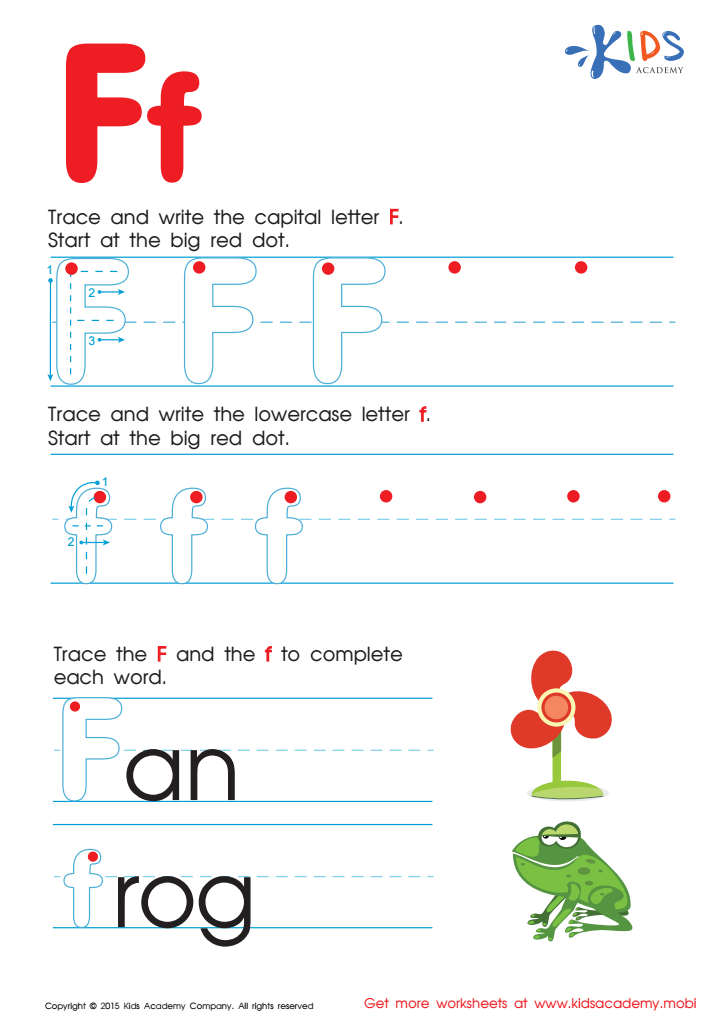

Letter F Tracing Page
Alphabet learning is foundational for children aged 5-8 and sets the stage for successful reading, writing, and communication skills. During these formative years, young learners' brains are exceptionally receptive to new information. Understanding the alphabet, including the names, sounds, and shapes of letters, is crucial because it equips children with the building blocks they need to decode words and form sentences.
For parents and teachers, focusing on alphabet learning fosters early literacy development which significantly impacts future academic achievement. Research shows that children who are proficient with the alphabet tend to learn to read more quickly and develop a love for books and storytelling. This early mastery not only enhances their academic performance in primary school but also contributes to their self-confidence and curiosity.
Moreover, alphabet knowledge supports cognitive skills like memory and pattern recognition. It also aids in the development of fine motor skills as children learn to write letters. Engaging activities such as singing alphabet songs, playing educational games, and reading alphabet books can make learning interactive and enjoyable.
Prioritizing alphabet learning creates a strong foundation for lifelong literacy and learning, offering children critical tools needed for effective communication and academic success. Therefore, parents and teachers investing time and effort into alphabet education can yield significant long-term benefits.
 Assign to My Students
Assign to My Students





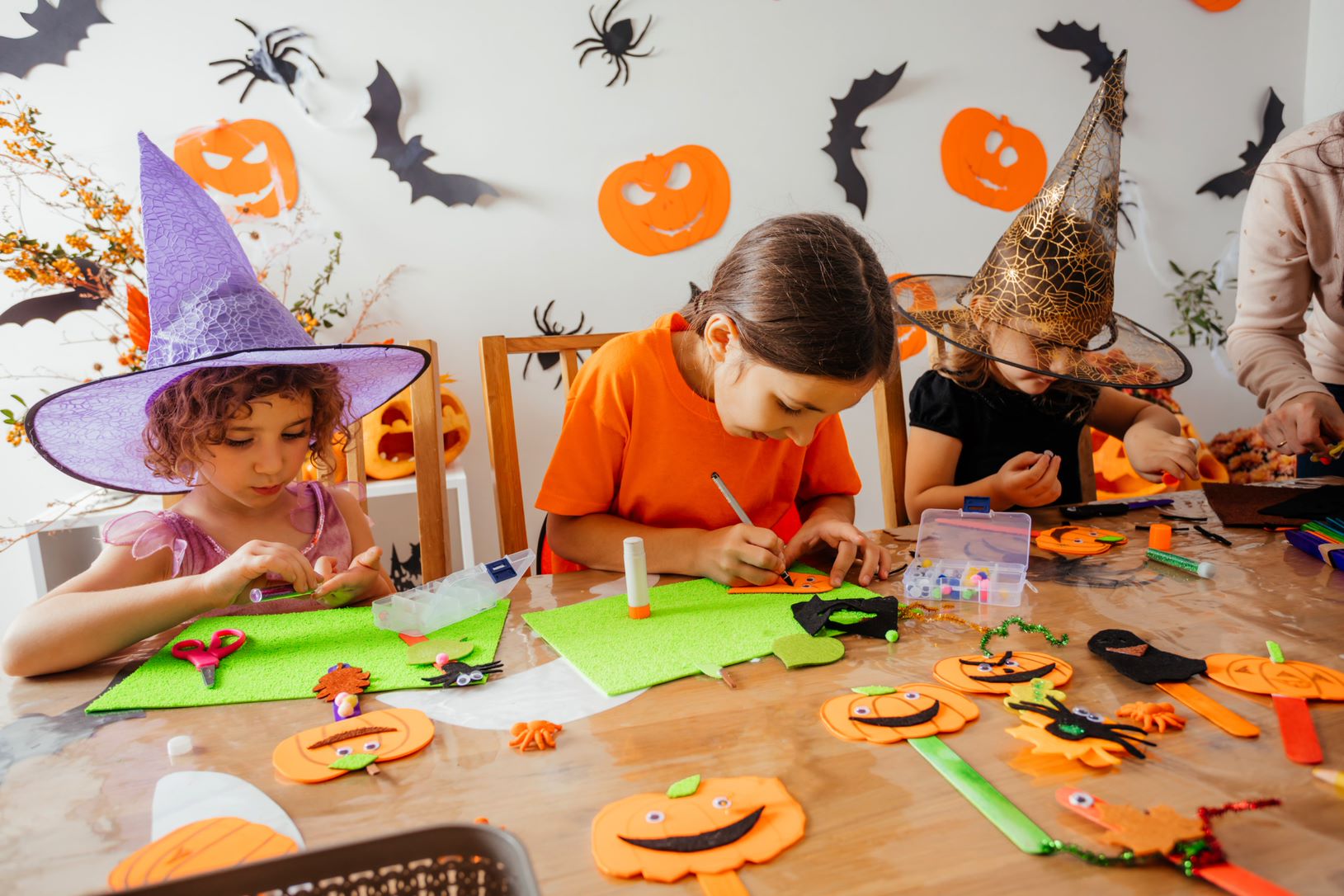
.jpg)










